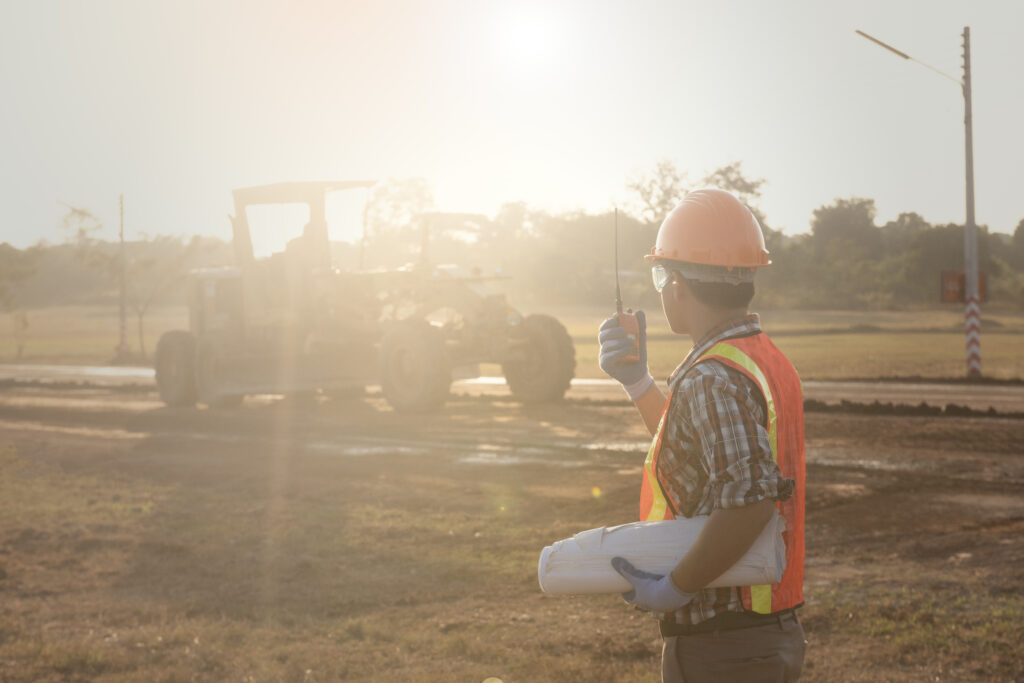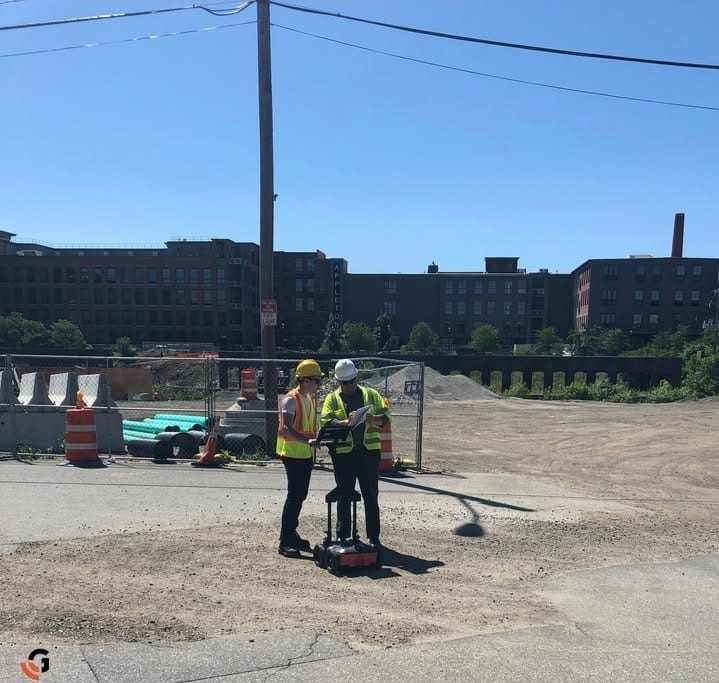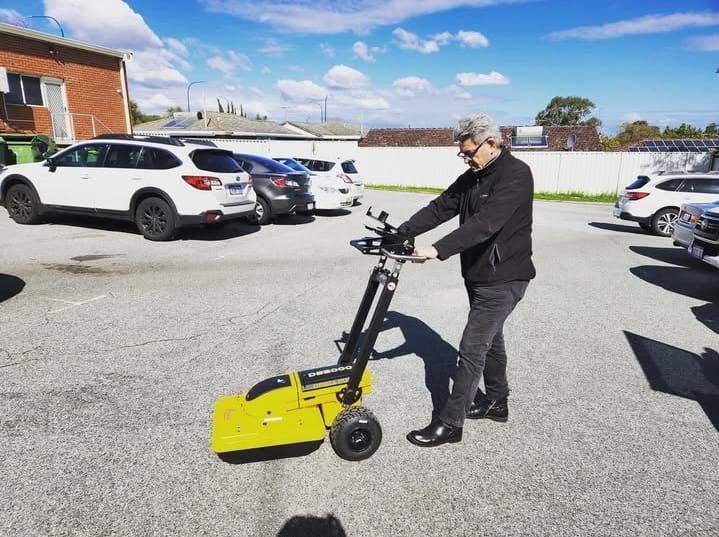Learn how AI can revolutionize Ground Penetration Radar (GPR)
The construction industry is experiencing a technological transformation, with one of the most promising developments being the integration of Ground Penetrating Radar (GPR) and Artificial Intelligence (AI). This dynamic duo is reshaping how construction projects are planned, executed, and managed, resulting in enhanced efficiency, safety, and cost savings.

What is GPR and How Does it Work?
Ground Penetrating Radar (GPR) is a non-invasive geophysical technique that employs radar pulses to visualize the subsurface. It is frequently used to locate buried objects, assess changes in material properties, and identify voids and cracks. GPR operates by sending electromagnetic waves into the ground and capturing the reflected signals, which are then processed to produce a visual representation of what lies beneath.

The Role of AI in GPR Artificial Intelligence (AI) significantly boosts GPR’s capabilities by streamlining data analysis, enhancing accuracy, and delivering real-time insights. AI algorithms can swiftly analyze large volumes of GPR data, spotting patterns and anomalies that human operators might overlook. This leads to more accurate mapping of underground utilities, identification of potential hazards, and improved decision-making throughout construction projects.
Examples from the UAE and KSA
- Dubai Metro Expansion: The expansion of the metro system in Dubai has greatly benefited from the application of GPR combined with AI. This technology has been instrumental in mapping underground utilities and identifying potential obstacles, ensuring that construction progresses smoothly and safely. AI algorithms have played a key role in analysing the data gathered by GPR, pinpointing the precise locations of existing infrastructure, and facilitating the planning of new metro lines.
- King Abdullah Financial District (KAFD) in Riyadh: In Saudi Arabia, the construction of the King Abdullah Financial District (KAFD) in Riyadh has leveraged GPR alongside AI to guarantee the project’s safety and stability. GPR has been employed to detect voids and weak spots in the ground, while AI has analysed the data to provide recommendations for reinforcement and stabilization. This has helped in preventing potential structural failures and ensuring the longevity of the buildings.

Benefits of GPR with AI in Construction
- Increased Safety: By accurately mapping underground utilities and identifying potential hazards, GPR combined with AI minimizes the risk of accidents and damage to existing infrastructure.
- Cost Savings: Detecting issues early and planning precisely can significantly lower the need for expensive repairs and rework, resulting in substantial cost savings.
- Efficiency: AI-enhanced GPR systems can quickly process data and deliver real-time insights, accelerating decision-making and project timelines.
- Improved Accuracy: AI algorithms improve the precision of GPR data analysis, providing more reliable and actionable information.
The Future of GPR powered with AI
As initiatives in construction progresses, the integration of GPR with AI is anticipated to become increasingly common in the construction sector. Future innovations may involve drones equipped with GPR and AI for aerial surveys, along with the use of machine learning algorithms to foresee potential issues before they arise.
The synergy of GPR and AI is leading to smarter, safer, and more efficient construction projects. Looking ahead, it is evident that this technology will be vital in transforming the construction industry in the UAE, KSA, and beyond.
